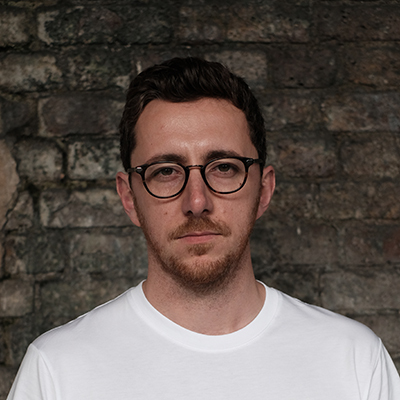There is a slightly condescending phrase that perky fitness trainers are fond of saying to anyone lacking the motivation to train: “If you don’t have 20 minutes a day to invest in your health, you’re lying to yourself!”
They’re not wrong, of course, but who says that those 20 minutes have to be spent hyperventilating on a treadmill? Not Dr Michael Mosley, for one. The broadcaster, author and health hacker has a new podcast series called Just One Thing. Available to download from BBC Sounds, its aim is to reveal surprisingly simple things you can do to boost your health and wellbeing. Each episode covers a short, sharp intervention – from cold showers to gorging on sauerkraut – that could literally change your life.
“I wanted to look at things that people could easily fit into their lives, which they might not be doing at the moment and where there was some real science behind it,” Mosley explains. “I do it, and another person – a member of the public – does it too, and I also interview a leading expert about how strong the science is.”
Mosley has long been an enthusiastic guinea pig for the science he reports on. He is widely credited with popularising intermittent fasting, and even used a low-calorie diet to reverse his own type 2 diabetes. He’s also made programmes on sleep, exercise, meat-eating and e-cigarettes, plus many other topics, on BBC Two’s Trust Me, I’m A Doctor. In short, he’s made a career out of living longer. Good work if you can get it.
“Of the 10 things we cover in this series, I still regularly do eight of them,” he reveals. He eats fermented foods such as kimchi, practises gratefulness, takes morning walks in green space and, at the age of 64, can probably do more press-ups than you can.
“One of the most surprising things was the cold shower,” he says, of the increasingly popular way to boost your immune system. “I never thought I would get into cold showers but I’m actually enjoying them now. It’s taken a while – several weeks – but I actually get in and frolic around. I sing a bit. And it’s no longer a pain. I’ve got into it and it makes me feel brighter and alert.”
Conversely, Mosley didn’t enjoy taking hot baths in the evening, which was another intervention that he explored on Just One Thing, which is linked with improving insomnia. “I just felt I didn’t want a hot bath in the evening and a cold shower in the morning,” he says. “I didn’t really find it did much for my sleep anyway.”
The other one he hasn’t continued with is learning a new skill – a surprise, considering he’s known for having a crack at things. “I was picking up drawing and to be honest, I’m terrible at drawing. What I’d like to do is pick up dancing instead. I’m waiting for things to open up [after lockdown fully ends]: Zumba, I think.”
We delve into the science behind the 10 habits and behaviours Mosley covers in the series. Just don’t pretend you haven’t got time to read about them.
Escape to green space

One of the lessons that coronavirus lockdowns taught us was the value of green space for general wellbeing. But while that was news to some, researchers have been cataloguing the benefits of time spent in nature for decades. One famous study, for example, looked at people recovering from operations in a hospital. Those in a ward with a view of green space recovered sooner and required fewer painkillers than those who didn’t have a view.
In Japan, the concept of ‘shinrin yoku’ or forest bathing is both popular and reasonably well-studied. It describes the process of spending time among trees, staying calm and still, as you observe the sights and sounds of nature. Researchers have found this can lower both your blood pressure and cortisol levels, while increasing the levels of your body’s natural killer cells – the frontline soldiers for your immune system that can control infections and even tumours.
“The NHS in Scotland seems to be sufficiently convinced that GPs can prescribe time in nature now,” Mosley says. “Plus, it’s just enjoyable. I have a wood near me and it’s lovely to be there.”
Take an early-morning walk
Banking 10,000 steps a day is one of the magic numbers that self-tracking health nerds all aspire to, but how and when you get those steps can have a big impact on just how beneficial the exercise is. A purposeful stomp soon after you wake can improve your sleep, speed up your metabolism and boost your mood and cognitive function.
“It’s about the time you go for your walk and the briskness of your pace,” Mosley says. “The advantage of an early-morning walk is that you get out there and get exposed to light, which will reset your internal clock, and we know that light is a powerful suppressor of melatonin and gets you going.”
As well as shutting down melatonin, which is a hormone that makes you feel tired, exposure to sunlight also boosts serotonin, improving your mood. The earlier you do it, the better the effects seem to be. In research from Tokyo University of Science, insomnia sufferers found it easier to drop off and woke up less frequently after engaging with early-morning exercise.
“The briskness seems to be important, too,” Mosley says. “You get more benefit if you’re doing more than 100 steps a minute than if you’re doing under. If you can aim for 120 there seems to be something optimal about that.”
A study involving 50,000 people by Ulster University found that getting a move on when you walk can boost its effectiveness by 20-50 per cent, with a significant reduction in your risk of cardiovascular disease. Up and at them, and all that.
Eat fermented foods
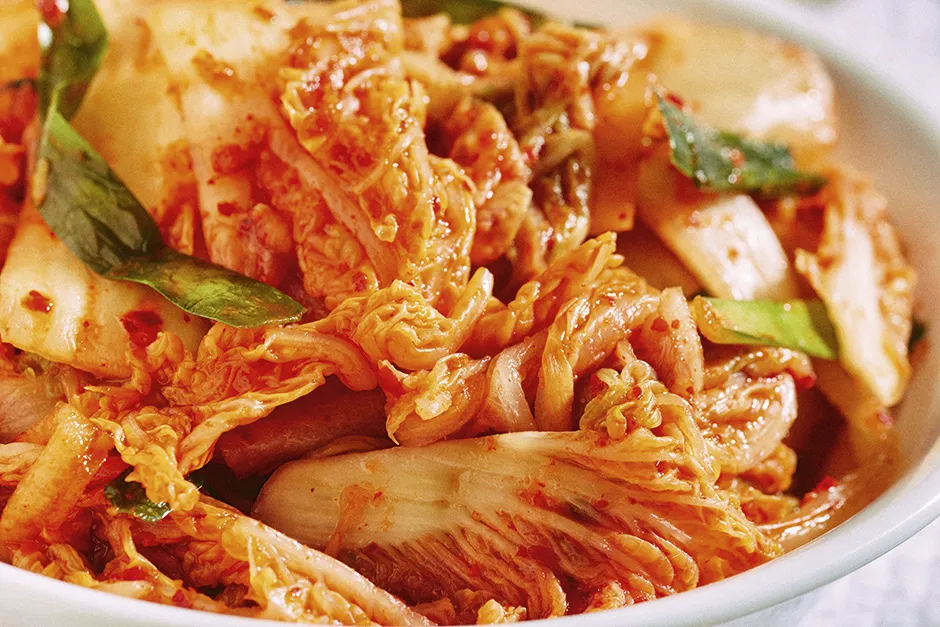
As you’re probably aware, your body is home to a teeming mass of other species, including bacteria, viruses and fungi, which are collectively known as the microbiome. Evidence is mounting that your personal gut microbiome – as individual to you as a fingerprint – can have major implications on your health, so feeding it the right stuff is essential. Fermented foods are top of the list.
These foods, which include sauerkraut, kimchi and kefir, are produced by the controlled growth of beneficial microorganisms, which break down carbohydrates and turn them into other chemicals. The bacteria add healthful diversity to your microbiome. Clinical studies are a little sparse, but it’s suggested that diets rich in fermented foods have widespread benefits, including lower risk of diabetes and metabolic syndrome, improved weight management and better digestive health.
There’s also intriguing new evidence that the microbiome could also impact your brain. Early research at APC Microbiome Ireland suggests that getting the right bacteria in your diet could improve cognition, mental health and lead to healthier ageing. Mosley is a convert: “I make my own sauerkraut and kimchi and we also make kombucha,” he says. Get pickling.
Learn a new skill
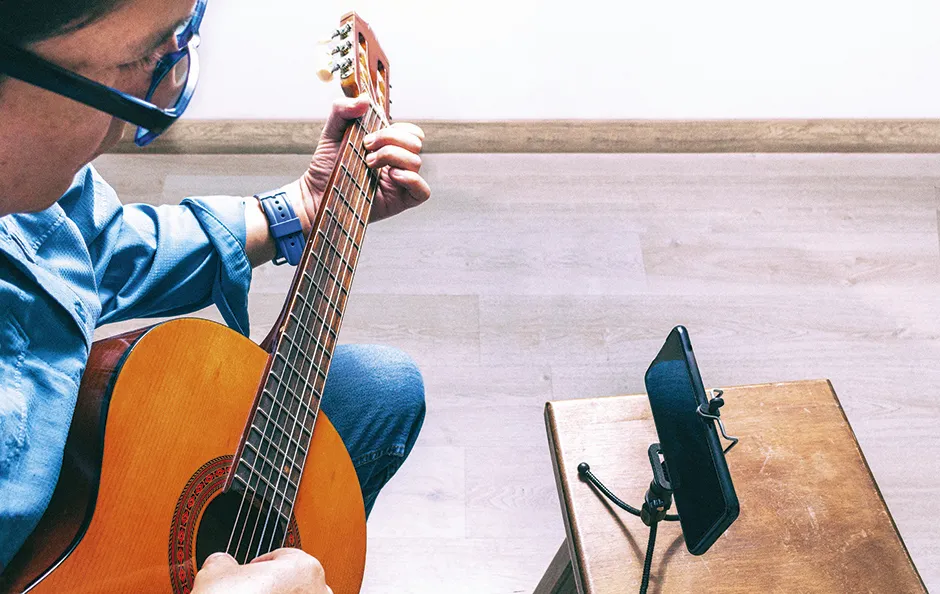
Always be learning. Yes, that sounds like the kind of thing your uncle would post on social media but maybe, just maybe, your uncle is a neuroscientist. Learning new skills is a well-established way of boosting your brain power and slowing mental decline as we age.
The reason is that when we learn something new – it could be a sport, a language, different skills at work – our brains make new neural pathways and patterns. The density of our brain’s white matter increases, and so does our processing speed. Over a lifetime, these cognitive jolts can help to stave off neurodegenerative disease.
Researchers at the Mayo Clinic in the US studied a group of people who carried the APOE4 genetic risk factor for Alzheimer’s disease. Older people with the APOE4 genotype tend to have lower cognitive function, but this study found that APOE4 carriers with a high level of lifelong learning delayed their cognitive impairment by an average of nine years.
The trick is, you can’t just fall back on the stuff you know you’re good at. You have to challenge yourself (and your brain) to make those connections by trying new things. On the plus side, there’s a good chance that it will make you feel great, too.
London Economics, a policy and economics consultancy, carried out a survey for the government’s Department for Business, Innovation & Skills and found that 80 per cent of learners had improved self confidence or self-esteem as a result of their learning.
Stand on one leg
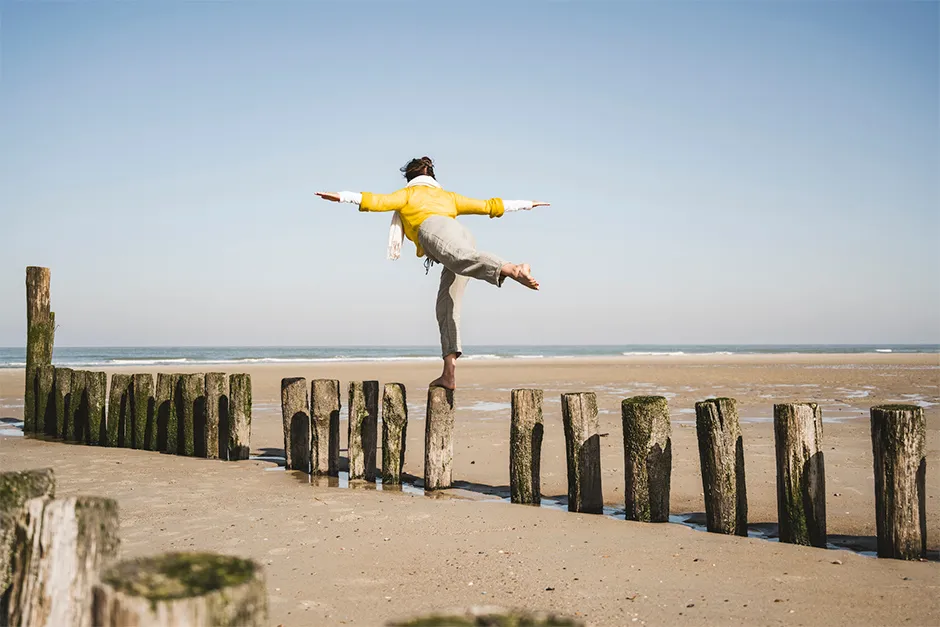
One of the rotten things about getting older is we sometimes lose the ability to make choices about the movements we make. We could get stiffer or slower, develop arthritis or inner-ear issues. These things can lead to issues with our sense of balance, and when that goes, it can lead to a negative spiral of health outcomes. You exercise less because you find it harder to balance, which may lead to weight gain, causing you to exercise even less. Insulin sensitivity, blood pressure and heart issues can – and often do – follow.
It’s why researchers like Prof Dawn Skelton at Glasgow Caledonian University think we should all be doing specific balance training over the age of 45 when balance issues can begin to present, if not younger. It gives us a vital foundation for physical fitness, extending the years we spend active and healthy, and boosts our brain power in the process.
“By doing a balancing exercise, you are challenging your brain to constantly practise keeping you upright,” Skelton says. “We have to fight the urge to stop doing something when it makes us feel a bit wobbly.”
She recommends anything from standing on one leg while the kettle boils to tai chi and racquet sports. Anything that asks you to change direction or control your body in different planes is ideal. Do them often, mix it up and keep your brain guessing. Studies have linked improved balance with better bone health, lower risk of a stroke and lower risk of all-cause mortality over a 15-year period.
Take a cold shower
A cold shower is close to a textbook definition of a rude awakening, but forcing yourself under a jet of icy water will do more than blow away the cobwebs. There’s growing evidence that cold water immersion is not only good for your immune system, but could improve mental health and even protect your brain from neurodegenerative conditions like Alzheimer’s disease.
“It’s reasonably robust science,” Mosley says. “There was a decent-sized trial looking at the impact of cold showers in a Dutch population and that did seem to affect the amount of time they took off work with illness. You certainly see changes in cold water immersion in animal studies and some human studies, with an impact on the immune system.”
Scientists believe the shock of cold water immersion triggers an inflammatory response that jump-starts your immune system. At Plymouth University, researchers have published a number of studies looking at whether the cold shock also resets your sympathetic nervous system, making your body better able to deal with everyday stresses.
In 2020, researchers from Cambridge University also reported interesting findings from a study on cold water swimmers at London’s Hampstead Ponds. Regulars at the ponds were found to have higher levels of a protein in their blood that’s been shown to slow the onset of dementia and even reverse some of its effects.
Before you go too cavalier with the cold tap, however, it’s worth noting that cold water immersion is not for everybody. Talk to your GP first if you have a history of heart disease or asthma, and if you want to try swimming rather than a shower, research ways to do it safely, especially if you’re a beginner.
For Mosley, 45 seconds under the cold tap each morning is enough. “With cold water, it seems to be a skin effect,” he says. “If you hang around too long, it gets into your tissues and that’s not a good thing. But it certainly invigorates.”
Read more about cold water swimming:
- Cold water swimming: Why an icy dip is good for your mental and physical health
- Dr Michael Mosley: Does cold water swimming have health benefits?
Do some press-ups
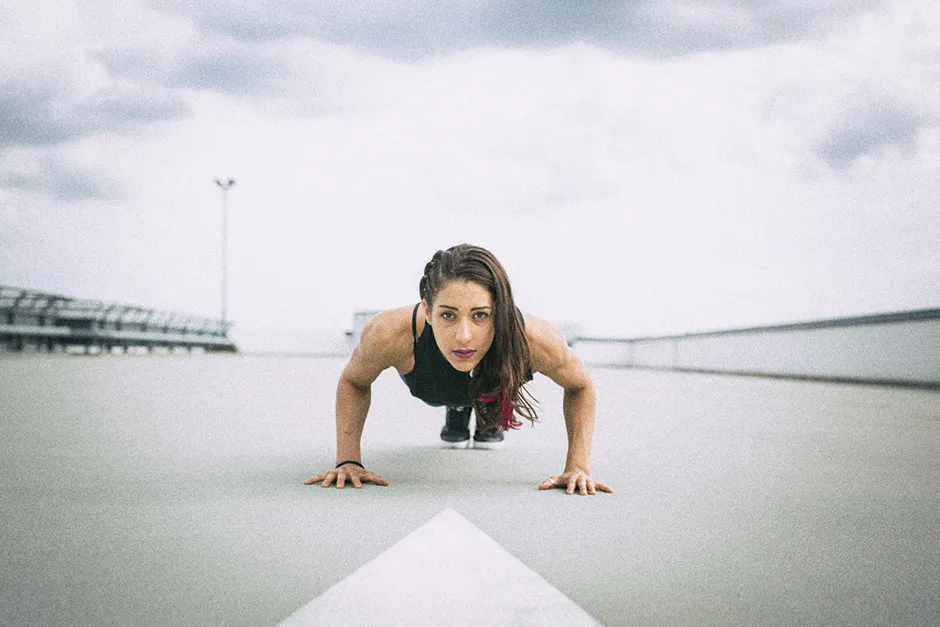
Drop and give us 20. Better yet, make it 40. Research at Harvard Medical School found that men who could do 40 press-ups had a 96 per cent lower risk of cardiovascular disease than those who could do 10 or less. Dr Justin Yang, who led the research, says it’s less about having big biceps and strong shoulders, and more about what the ability to do so many press-ups tells us about our general strength and aerobic fitness. “The ability to do this many push-ups serves as an indicator of one’s risk of a cardiovascular event later on in life,” he says.
While Yang says that cardiorespiratory fitness remains the gold standard for judging and indeed improving somebody’s heart health, there is emerging evidence that strength can also prolong our lives. “There are suggestions that grip strength, for example, correlates with lower blood pressure,” he says. Likewise, a 2018 study in the Journal Of Gerontology found that people with low muscle strength are 50 per cent more likely to die early than stronger peers.
If press-ups aren’t your thing, try squats instead. Not only do they build muscle, but a study in 2020 by the University of Southern California suggested you could help stave off obesity, heart disease and type 2 diabetes if you squat or kneel instead of sitting down. The study looked at the Hadza tribe, who live in Tanzania. They squat instead of sitting and, despite resting for the same amount of time as we do in Western countries, their incidence of such diseases is much lower.
Take a breath
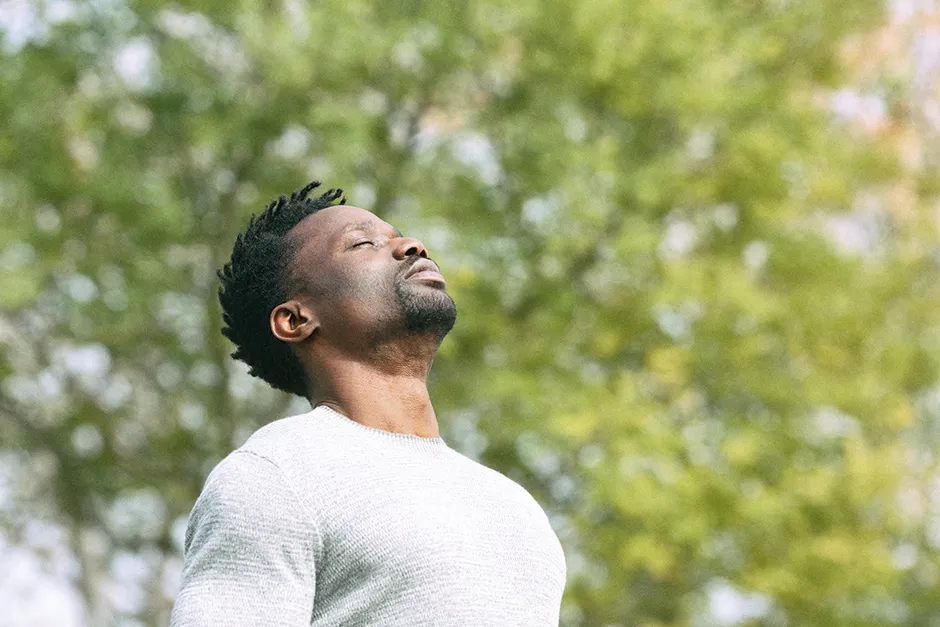
‘Breathing makes you live longer’ doesn’t sound like a groundbreaking discovery, but how we breathe is a subject of growing fascination for both wellness converts and bona fide biomedical researchers. It seems many of us are doing it wrong.
Scientists are finding that deep, slow, purposeful breathing can improve your heart health, reduce anxiety and enhance your brain power by helping you make better decisions. We’ve known for years that breathing exercises can reduce symptoms of depression and anxiety, while a 2017 review by scientists at São Paulo University found that it can also lower your blood pressure. In another study, pre-operative breathing exercises were associated with a lower risk of complications after heart bypass surgery.
“It has an impact on your parasympathetic system [rest and digest] and that is opposite to your sympathetic system [fight or flight], so it slows your heart rate down and basically just calms everything down,” Mosley says. “There are quite a few different breathing techniques. The one the NHS recommends is 4-2-4, and that’s the one I do myself.”
Breathe in, counting to four, hold it for two and breathe out for four. It’s also known as 4-6: you can simply breathe in for four and breathe out for six. “I do it when I wake up at 3am in the morning, which I often do, and it’s very soothing.”
Have a hot bath
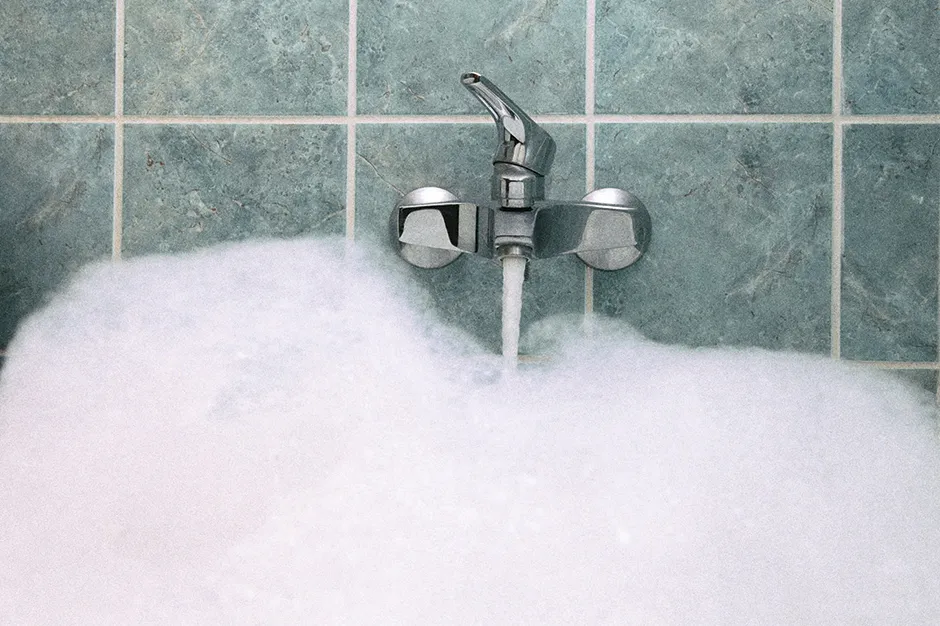
Lots of people indulge in an occasional bath to unwind, but studies suggest it should be a regular habit. Researchers at Osaka University tracked 30,000 Japanese adults over 29 years, and found that daily hot baths are associated with a 28 per cent reduced risk of heart disease and a 26 per cent reduced risk of stroke. They believe the hot water lowers your blood pressure and improves the heart’s ability to pump blood.
Still not convinced to reach for the bubble bath? Separate research found a hot soak can raise your metabolism and help control your blood sugar similarly to 30 minutes of walking. Time your bath 90 minutes before bedtime and you may even get a better night’s sleep thrown in for free. A team at the University of Texas at Austin found this can help you fall asleep 10 minutes sooner than you otherwise might.
It works by raising your core body temperature to such a height that it has to then fall – and a natural drop in body temperature is one of the triggers your body uses to prepare itself for sleep. BBC Science Focus has not been able to verify whether a glass of wine and a trashy novel has any bearing on the bath’s effectiveness…
Count your blessings

It’s been a difficult 18 months, but finding reasons to be grateful could help our mental health, and more besides. “Research, including my own, has shown that people who have more of a grateful mindset tend to be more resistant to issues with anxiety and depression, even when they’re living with a chronic health condition,” says Dr Fuschia Sirois, who researches gratitude at the University of Sheffield.
She says that people who invest time in being grateful also enjoy better sleep because they have fewer negative thoughts before they go to bed. In one study, an attitude of gratitude was found to lower levels of inflammatory biomarkers related to heart health. Even if you’re naturally a glass-half-empty kind of person, forcing yourself to write a gratitude journal or using an app can deliver results; a common technique is to record ‘three good things’ a day.
It might even make for fewer jerks. Research in 2020 at the University of Florida found that when employees were encouraged to keep a gratitude journal, they exhibited less rude behaviour in the workplace.
- This article first appeared inissue 364ofBBC Science Focus Magazine–find out how to subscribe here
About Dr Michael Mosley
Dr Michael Mosley is former medical doctor, health writer and BBC presenter. He’s best known as presenter of Trust Me I’m a Doctor on BBC Two but has also written a number of bestsellers about personal health and medicine, including The Fast Diet, Fast Asleep and Fast Exercise.
